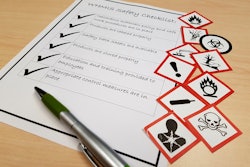
While some of it may prove to be constructive, the majority of it is unwarranted and not delivered tactfully. In your time as a leader, you have probably experienced a slew of different forms of criticism, whether it be the direct and respectful approach, the passive-aggressive comment, an anonymous note, a hateful comment online, or a customer just blatantly walking out the door.
Regardless of how it’s given, it’s important to always remember that being able to handle criticism with dignity and humility will help you improve as a leader and also help your company grow and flourish.
Take a look at tips you can practice daily to ensure you’re better able to handle criticism in its many forms when it inevitably appears.
Reality check
If you’ve always dreamed about working in an environment where no one ever has negative things to say about the work you do, you’re kidding yourself.
Regardless of the field you work in, there will always be someone who has a beef with you and isn’t afraid to let you know it. While it’s true that there are more than a few toxic work environments out there that pile on more than just criticism, there are also amazing and functioning workplaces, but both environments will offer critics. As long as you have staff members and customers, you are in a prime position to receive criticism.
The temptation sometimes can be to avoid the critics by flying under the radar and never making any waves in the workplace. While this might keep you from getting your feelings hurt by critiques, it also will keep you from excelling in your job and moving up in the world.
Overall, it boils down to how you handle it and how you let it affect you.
The immediate reaction for most people when it comes to criticism is to lash out irrationally, meaning you might have a snarky comment to throw back or your voice might rise to a near-screaming volume. Some people refer to this as the toddler reaction, and it’s aptly named.
A lot of times, your reaction is based on the day you’ve had. If it’s been one hit after another all throughout the day, it can be very hard to keep a level head when one more thing goes awry.
The natural tendency is to get defensive, start denying blame and try to throw your own criticism back, whether it’s legitimate or not, and this only hurts the way your employees look at you. Employees don’t want to work for a childish person, so taking care to exercise a bit of emotional intelligence can keep you from making a reputation for yourself that you’ll regret.
Response time
When you receive a harsh review, negative comment online or any kind of accusatory or critical message from either a co-worker or client, there’s almost always a feeling of anger, hurt, betrayal, etc.
When these emotions surface, they are usually followed by unclear thoughts and knee-jerk reactions. Nothing good comes from responding to these negative comments in the heat of the moment, so as a general rule, it’s best to not respond for 24 hours.
When dealing with an email or online confrontation, this is much easier, as you can simply close the browser window and leave it be, but when dealing with face-to-face interactions, it is much more difficult.
If this happens, bite your tongue and don’t let anything negative slip out. Try to remove yourself politely from the situation by thanking the person for his/her input, don’t say anything else about the situation, and excuse yourself to get your thoughts together.
By taking this time to gather your composure, you’ve kept yourself from saying something you’d regret or possibly something that could even lose you your job.
Find the truth and own up to it
When taking this time away to think up a response, be sure to ask yourself is the critique even true, or was it just something said out of anger or spite?
Many times, it’s just a disgruntled person airing his/her feelings right at you, but sometimes there can be some truth to what’s being said. In situations like this, talk to a close friend or trusted colleague, as he/she may be able to see what you are blind to and will be honest and upfront enough to not sugar-coat the issues.
If there is some truth to the criticism, take it as an opportunity to grow and learn from it to become a more well-rounded individual. Being self-aware is a vital step in becoming an emotionally intelligent leader in the company, and whether we like it or not, our critics can turn out to be the ones who help us grow the most in the journey of self-awareness.
As mentioned before, sometimes there is a bit of truth behind every criticism, and when this is the case, it’s important for you to be able to own up to whatever you can.
It’s also a good idea not to look to your customers who would be considered die-hard fans of your work or even co-workers or employees that think the world of you, as they more than likely won’t be able to give you accurate feedback.
If you have done or said something to offend someone, try to understand exactly what it was that was offensive and why it might have struck the person the wrong way. Could it have been said differently, or did it just happen to hit them at the wrong place and the wrong time? Even if the person has vastly overreacted, own up to what you did or said to offend them, and he/she will be grateful that you attempted to right the wrong.
Weak leaders will blame shift onto someone else to try and make themselves look better. Great leaders assume the responsibility for wrongdoing, even if they really and truly had no part in it.
Find the bit of truth that’s in the complaint and work to resolve it, and when it comes to the rest of it, push it out of your life and move forward.
Sometimes good employees or good customers will say negative things to or about your landscaping company, and many times, there’s no legitimate reasoning behind it. It could just be that someone is having a bad day and they accidentally took it out on you or your company.
When this happens, it’s best to just let it go. You’ve done everything you can on your part to help the situation and resolve it, but you cannot fix every little thing.
Response etiquette
Along with taking the appropriate amount of time to respond to criticism, you should also keep in mind that you need to respond professionally and kindly.
Even if the initial message you received was short, abrasive, harsh or passive-aggressive, that doesn’t mean you need to respond the same way. Quite the contrary, actually. In situations like this, the most beneficial way to respond would be to kill them with kindness, as this shows them you weren’t offended by what they said and also were not negatively affected by it.
If someone is purposefully trying to goad you into responding back negatively, showing them they had no power over you will really stick it to them and show you aren’t someone to be trifled with.
Another way to take the high road is to respond to their critical email with a phone call. This will not only throw them off because they were expecting an email response but it will also potentially diffuse some tension, as people are much bolder via email.
If you were confronted about an issue in the hallway by a co-worker or employee, call them and ask to take them out for lunch or for coffee. Tell them you appreciate what they had to say and you would like to hear more about what they think you could do to fix the situation.
More often than not, addressing these issues head-on will diffuse any tension between you and the other person, and it serves as an excellent learning opportunity for both parties.











